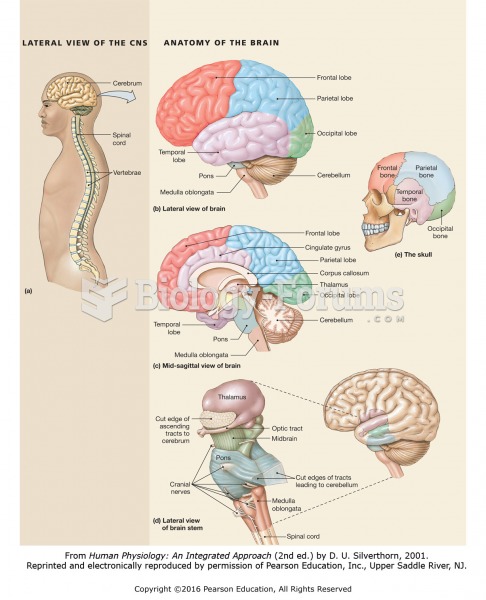|
|
|
The oldest recorded age was 122. Madame Jeanne Calment was born in France in 1875 and died in 1997. She was a vegetarian and loved olive oil, port wine, and chocolate.
Walt Disney helped combat malaria by making an animated film in 1943 called The Winged Scourge. This short film starred the seven dwarfs and taught children that mosquitos transmit malaria, which is a very bad disease. It advocated the killing of mosquitos to stop the disease.
More than 2,500 barbiturates have been synthesized. At the height of their popularity, about 50 were marketed for human use.
HIV testing reach is still limited. An estimated 40% of people with HIV (more than 14 million) remain undiagnosed and do not know their infection status.
Asthma-like symptoms were first recorded about 3,500 years ago in Egypt. The first manuscript specifically written about asthma was in the year 1190, describing a condition characterized by sudden breathlessness. The treatments listed in this manuscript include chicken soup, herbs, and sexual abstinence.
 How do men who work in traditionally feminine nurturng jobs and women who work in jobs that give ...
How do men who work in traditionally feminine nurturng jobs and women who work in jobs that give ...
 A basic principle of symbolic interactionism is that meaning is not inherent in an object or event, ...
A basic principle of symbolic interactionism is that meaning is not inherent in an object or event, ...





